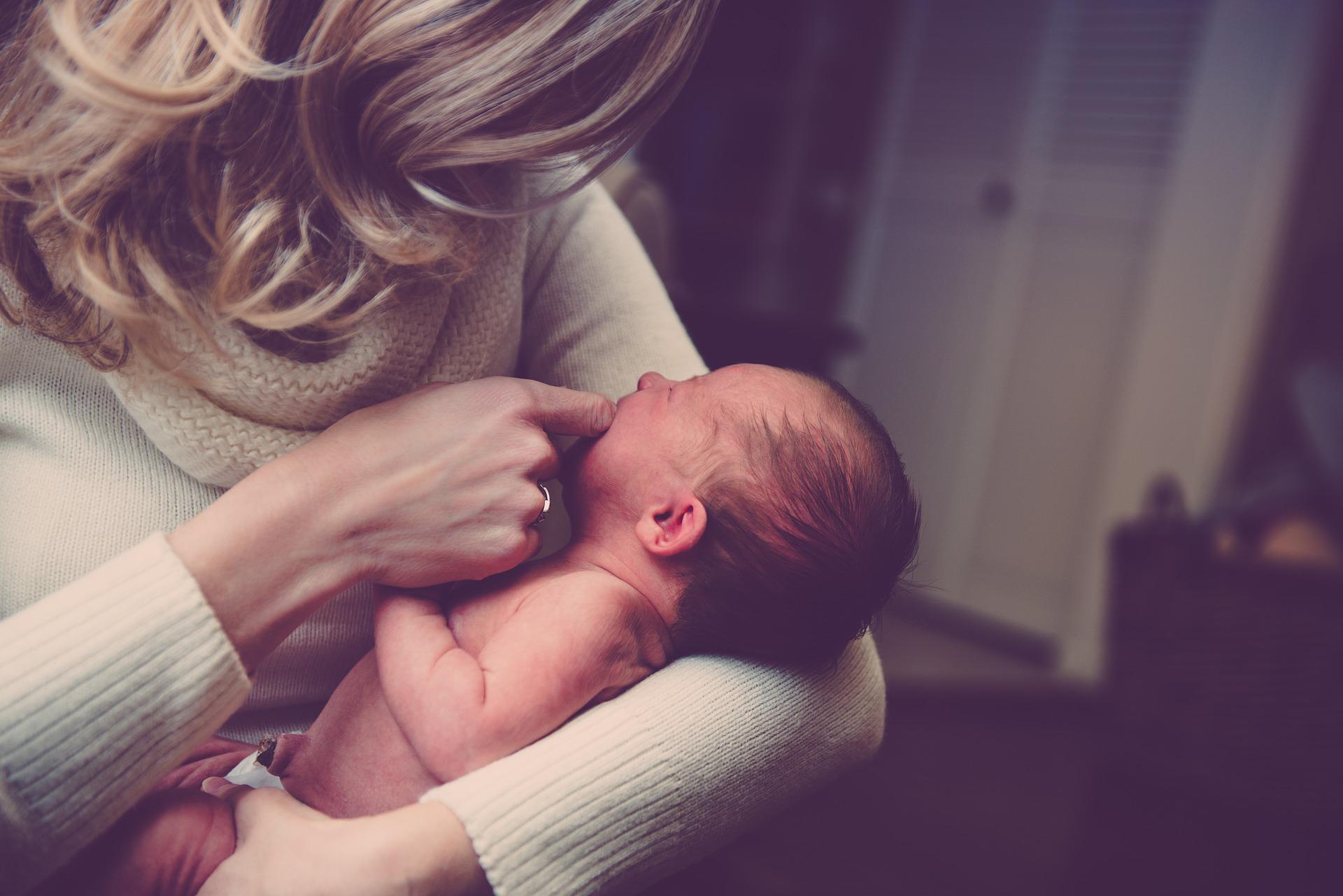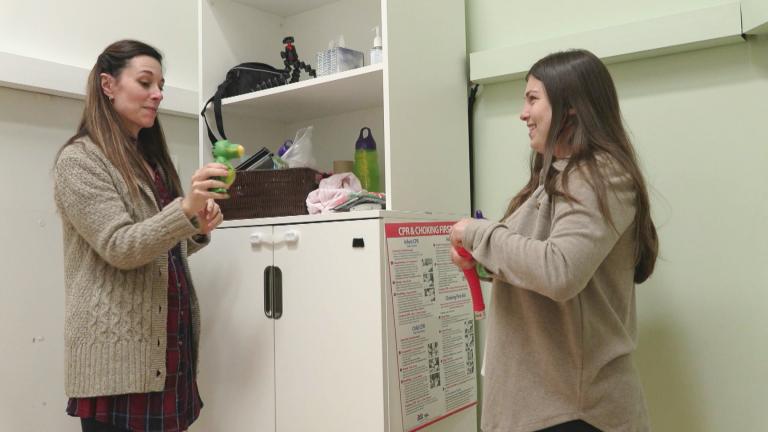 Some women with postpartum psychosis report experiencing depression and a “dark force” within them that takes over and compels them to hurt the baby, Northwestern Medicine psychiatrist Dr. Katherine Wisner said.
Some women with postpartum psychosis report experiencing depression and a “dark force” within them that takes over and compels them to hurt the baby, Northwestern Medicine psychiatrist Dr. Katherine Wisner said.
A little-known illness referred to as a “psychiatric emergency” is the focus of a recent study published by The American Journal of Psychiatry.
Postpartum psychosis, a more severe illness than postpartum depression, increases a mother’s risk of harming or killing herself or her newborn, according to the study.
“You can have a woman that goes into labor who’s perfectly fine and then 24-48 hours postpartum, she’s disorganized, she’s confused [and] doesn’t know who she is [or] where she is,” said Northwestern Medicine psychiatrist Dr. Katherine Wisner, one of the study’s co-authors.
The combination of a lack of research on the illness and its rarity—only one to two mothers out of every 1,000 are affected—contribute to missed diagnoses by physicians, according to the study.
Researchers believe there’s a strong biological connection to the onset of postpartum psychosis, Wisner says.
When a woman gives birth there’s a “massive withdrawal of hormones” that seems to trigger postpartum psychosis, particularly in women with cyclical mood disorders like bipolar disorder or manic depression, Wisner said. Most cases of postpartum psychosis stem from bipolar disorder.
Women are under a lot of stress and can experience a lot of pain during labor, which can throw off their circadian rhythm and sleep-wake cycle, she said. Anyone who’s experienced jet lag has endured circadian rhythm disruption, which “has huge effects on your ability to think and be aware of what’s happening around you,” Wisner said.
Unlike postpartum depression, psychosocial factors, like marital satisfaction and role changes, don’t seem to play a role in the development of postpartum psychosis, Wisner said.
Symptoms and treatments
Women with postpartum depression can experience anxiety, fatigue, loss of appetite, “pervasive sadness,” guilt and obsessional thoughts about hurting the baby, Wisner said. These thoughts come out of the blue and are typically framed as hypotheticals, such as “What if I put the baby in the microwave? What if I drown the baby while I’m bathing the baby?”
While these thoughts are “incredibly disturbing,” acute onset of postpartum psychosis is much more severe, according to Wisner, and can include hallucinations, delusions or other psychotic symptoms.
“Some women present very rapidly after birth with frenetic, bizarre behavior,” Wisner said, such as feeling things on their skin and smelling things that aren’t there.
Other women with the illness can appear more composed but report experiencing depression and a “dark force” within them that takes over and compels them to hurt the baby, Wisner said.
When it comes to treating the condition, it’s important to distinguish between women who develop symptoms only after childbirth and those who have recurring mood episodes both during and after their pregnancy.
Lithium, which is used to treat bipolar disorder, is an effective and fast-acting drug for treating postpartum psychosis, Wisner said. Her philosophy for treating women who experience episodes of postpartum psychosis is “baby goes out, medicine goes in.”
According to the study, the majority of breast-fed babies whose mothers were on lithium had no adverse side effects when closely observed.
“I usually recommend at least a six-month treatment period with a very, very slow taper of medication,” she said. “We’re watching very carefully for symptom return when the medication’s tapered,” which needs to be done during a “time of very low stress.”
Women who experience a more chronic form of bipolar disorder as an underlying factor to postpartum psychosis need to be treated with medication on a continuous basis during and after pregnancy to maintain wellness, Wisner said. Medications in these cases need to be closely monitored and adjusted as the body’s metabolism changes during pregnancy.
“There’s still a lot of stigma attached to these disorders and it’s so important for women not to suffer for themselves, their families or their newborns,” Wisner said.
“It’s so important for women to not hide these symptoms or be concerned about going for treatment,” she added. “Women do not need to suffer.”
Follow Kristen Thometz on Twitter: @kristenthometz
Related stories:
 Study: Yoga, Meditation Can Reduce Stress for Disadvantaged Women
Study: Yoga, Meditation Can Reduce Stress for Disadvantaged Women
Aug. 24: Practicing mindfulness exercises like yoga and meditation can alleviate symptoms of depression and stress among disadvantaged women, according to a recent study.
 For Expectant Mother, Possible Exposure to Zika a Terrifying Ordeal
For Expectant Mother, Possible Exposure to Zika a Terrifying Ordeal
April 26: We talk with a local woman, pregnant with her first child, who has been dealing with the terrifying possibility that she and her unborn child may have been exposed to the virus.
 Study: Excessive Cellphone Use Linked to Anxiety, Depression
Study: Excessive Cellphone Use Linked to Anxiety, Depression
March 11: Here’s another reason to consider giving your cellphone a rest: Compulsively checking such devices as a way to cope with uncomfortable situations has been linked to anxiety and depression.








